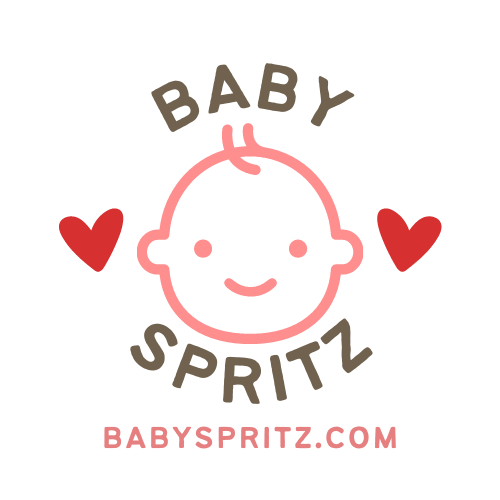You may wonder when to start baby on solid foods. Introducing solids to baby is an exciting milestone that may be daunting, but it can be easy once you know what to do. So, if you’re curious about when and how to start introducing solids for baby health that are good for your little one, stick around! Read on to know “how to introduce solid foods to baby”.
When Should You Feed Your Baby Solid Foods?
Asking the question when to start baby on solid foods? When a kid is around 6 months old, The American Academy of Pediatrics recommends that it is safe to introduce them to meals other than breast milk or baby formula. Solid food introduction before a baby is 4 months old is not advised.
You could also look for these signs that your child is ready for baby solid food introduction:
- If your baby can sit with a support
- If your kid tries to grip little items, such as food or toys
- If your child opens their mouth for food
- If your baby is mouthing toys or your hands
- If your child Can hold his or her head steadily and upright
- If your kid carries something to the mouth
- If your baby transports food for swallowing from the front to the rear of the tongue
How Can You Introduce Solid Food to Your Child?
Baby solid food introduction at first, offer dishes with only one ingredient and no salt or sugar. This enables you to determine whether your child has food-related issues, such as food allergies. Between each new food, wait three to five days to determine whether your infant has a response, such as diarrhea, a rash, or vomiting.
In the stages of baby development as well as baby food stages, most infants can handle modest quantities of finely chopped finger foods by the time they are 8 to 10 months old, including soft fruits, vegetables, pasta, cheese, well-cooked meat, baby crackers, and dry cereal. You should not rush introducing solids to baby.
Which solid foods ought should you give your child first?
Your youngster can consume a wide range of baby food from several food categories. The secret to newborn care is to feed your infant the correct texture of iron-rich meals from the start. You may combine these iron-rich meals with other wholesome foods that have the correct texture. Iron-rich and healthy best first foods for baby include:
- Baby cereal enriched with iron
- Mashed egg
- Veggies
- Fruit
- Fish, poultry, and minced meat
- Grains
- Cooked peas and tofu
- Pasteurized yogurt and cheese
Which foods should you not feed your baby?
During the stage of baby development. You can introduce your kid to foods that are more likely to develop allergies. Some foods may be bad especially if you prioritize the baby health. These include soy, wheat, shellfish, cow’s milk, eggs, peanuts, and nuts. Food allergies cannot be avoided by delaying the initiation of certain foods.
If you have concerns about food allergies, especially if any members of your immediate family suffer from allergies, food allergies, or allergy-related illnesses like eczema or asthma, it’s best to consult with a doctor. Peanut allergies are more common in young children who have severe eczema or egg allergies. How and when to offer these meals to your kid should be discussed with your doctor for newborn care.
Contrary to the best first foods for baby, infants shouldn’t have:
- Foods that can choke
- Unpasteurized milk, yogurt, cheese, or juice
- Ordinary cow’s milk
- Sodium-rich foods
- Honey
- Meals with no-calorie sweeteners and added sugar
- Unmashed hard fruits and vegetables
How should I feed my child?
On the early journey of baby food stages, you can start by giving your infant half a tablespoon or less. At first, your infant might not know what to do when trying to be fed with a spoon. They can have a significant expression while they refuse it.
Giving your baby a little amount of breast milk or formula is good. Switching to very small half-spoonfuls of food and finishing with additional breast milk or formula is also good. Those are approaches to ease the transition to eating solids for the first time easier. By doing this, you can keep your kid from feeling irritated while they’re starving.
Be prepared for the majority of the first several solid-food feedings that can end up being rejected by your child and just be a stain on their clean baby clothes. Increase the food intake gradually, beginning with only a teaspoonful or two. This gives your infant the chance to practice swallowing solid foods.
Do not force your infant to eat if they cry or look away when you are feeding them. Before attempting again, return to breastfeeding or bottle-feeding only. It’s important to keep in mind that introducing solid foods is a gradual process; initially, your baby will still receive the majority of their nutrients from breast milk, formula, or both. Additionally, because every infant is unique, the readiness to begin solid meals will differ.
Tips on Feeding Your Child Solids
Here are some tips on how to introduce solid foods to Baby. Your kid will first find it simpler to eat meals that have been mashed, pureed, strained, or have a very smooth texture. As per your child’s development, they need some time to get used to different foods. You can introduce thicker and lumpier meals as your baby’s oral abilities advance.
It’s vital to serve your child meals that are the correct texture for his or her development since some foods can be choking dangers. Prepare meals that can be quickly dissolved with saliva and don’t need to be chewed to assist prevent choking. Always make sure to keep a keen observation of your youngster while they are eating.
Here are some tips on how to feed your child solids:
- Mince the food into chewable pieces
- Mash the meals for your child until it is chewable
- Food should be cooked until it can be readily mashed with a fork.
- Finely ground whole-grains
- Mix cereals with breast milk, or liquid
- Remove bones from meat or fish before feeding
- Cut meat into short thin strips
- Don’t feed your child hard fruits and vegetables. Start with soft ones
In conclusion
See it’s fairly easy! Introduce solid foods to babies around six months old, and not before four months old or if they show the signs mentioned above. It’s important to feed babies dishes with only one ingredient at first and no salt or sugar. Always remember to keep an eye on your child while they are eating to prevent choking.
For more information about newborn care, check out our blog page!
FAQs about introducing solid foods to your baby
When usually should I introduce solids to my baby?
Typically, babies can start solid foods between 4-6 months of age. It’s important to look for signs of readiness, such as the ability to sit up and hold their head steady, showing interest in food, and being able to swallow food.
What are the best foods to introduce first?
Iron-fortified infant cereals, pureed fruits and vegetables, and mashed or pureed meats are good choices for first foods. You can also consider mashed or pureed legumes such as beans or lentils or tofu.
Should I introduce one food at a time or multiple foods at once?
It’s generally recommended to introduce one new food at a time, waiting 3-5 days before introducing another new food. By doing this, it can help you identify any potential food allergies.
Is there a limit to solid food should I feed my baby?
In the beginning, your baby may only eat a few spoonfuls of food at a time, gradually increasing to 2-3 tablespoons per meal by 8-9 months of age.
How often should I offer solid foods to my baby?
In the beginning, start with one feeding per day and gradually work up to 3 meals per day. You can offer solid foods in addition to breast milk or formula.
Should I use homemade or store-bought baby food?
Either option is fine, as long as you follow safe food handling practices and ensure that the food is age-appropriate and free of added salt, sugar, or spices.
What foods should I avoid giving my baby?
Honey, cow’s milk, and certain high-risk foods such as peanuts or shellfish should be avoided until after 1 year of age. You should also avoid giving your baby foods that pose a choking hazard, such as whole grapes, nuts, or popcorn.
What should I do if my baby refuses to eat solid foods?
It’s normal for babies to take some time to adjust to new foods. You can try offering the same food again at a later time or introducing a different food. It’s also important to avoid pressuring your baby to eat and to offer food in a positive, relaxed environment.
When should I introduce textures and finger foods?
Around 8-9 months of age, you can start introducing thicker purees and mashed foods, as well as soft finger foods such as small pieces of cooked vegetables or fruit.
When can I introduce allergenic foods like peanut butter?
Recent research suggests that introducing allergenic foods early around 6 months of age may reduce the risk of food allergies. However, it’s always a good idea to talk to your pediatrician before introducing allergenic foods and to closely monitor your baby for any signs of an allergic reaction.

